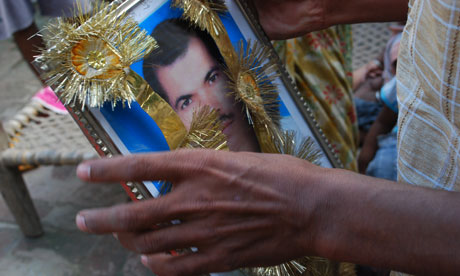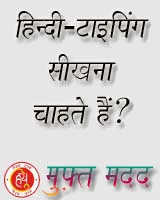Ram Puniyani
The tragedy of Mumbai 26/11 was one of the worst terror attacks in recent history in more ways than one. Apart from many other aspects of the tragedy one accompanying fact was the death of Hemant Karkare who was investigating into Malegaon bomb blast. His death was preceded by many a threats to his life from various quarters, Maharashtra Government had the reports about these threats. Since then the death of this upright police officer has become a contentious issue. Anybody raising questions about it is outright dubbed anti Hindu, anti-national, pro-Pakistan, a convenient decoy for those trying to hide the mountain of truth behind this tragedy.
That’s precisely what happened when Congress General Secretary Digvijay Singh stated that Karkare was under tremendous pressure from Hindu right wing groups and that Singh had a talk with Karkare on the evening prior to Karkare’s death (December 2010). With this statement of his a hell broke loose and section of media tried to project as if Digvijay Singh’s statement is not true as Karkare was busy in such and such meetings. Now that does not cut much ice in today’s times when people are eared to the mobiles, and few minutes of conversation between meetings or during meetings is not a big deal.
Mr Singh also gave the Bhopal BSNL the number from which he had talked to Karkare but since the conversation took place over two years earlier, the record could not be traced as BSNL does not keep records beyond one year. Mr. Singh also showed the cuttings of papers which had carried this news at some time ago.
But is it the first time that we are coming to know that Karkare was under immense pressure from the people who were being investigated? Apart from Mr. Singh’s statement there had been media reports about leaders of Shiv Sena and BJP raising doubts about his integrity. The Shiv Sena’s Saamana had launched a sort of character assassination of this officer, it went to the extent of saying that they spit on Karkar’s face. Narendra Modi called him deshdrohi. The hypocrisy of both streams became clear after the murder of Karkare. Karkare was called a martyr by these communal parties and Narebdra Modi even offered Rs 1 crore to the widow of the slain Karkare, which she refused to accept.
None other than Lal Krishna Advani went to the Prime Minister to complain about the torture of Pragya Singh Thakur and demanded for investigation of Thakur’s torture. This was a direct insinuation into the work of Karkare, who was so intimidated by this gang that he sought solace and advice from the senior police officer of the stature and integrity of Julio Reibeiro. Reibiero in his obituary (Times of India28th Nov 2010) confirmed that Karkare was being harassed and intimidated by the associates of Advani-Modi. Reibeiro advised the junior colleague to carry on with his work irrespective of the pressures. "He came to me because he was looking for someone to hold his hand," Ribeiro told IANS on phone from Mumbai while stressing that Karkare was not a man to be politically influenced.
"He… was more bothered about the BJP, which had well-oiled propaganda machinery and was running a concerted campaign against him that he had filed false cases against Pragnya Thakur and others" said Reibeiro.
By now many a skeletons have tumbled out of the secrecy of Sangh Parivar and starting from Pragya Singh Thakur to the top leaders Indresh Kumar and Swami Assemanand’s role in Ajmer, Mecca masjid blast and many other blasts is being investigated. One recalls that the large section of media has been quiet on this issue and starting form Nanded April 2006 blast in the house of a RSS worker Rajkondawar, these news items are either ignored or underplayed. We have seen banner headlines after some blasts proclaiming so called Jehadi groups to be behind the blasts. As the matters turn other barring the 26/11 case where Pakistan based Al Qaeda offshoot is involved, most of the cases which took place were the handiwork of the likes of Thakur, Indresh Kumar and Swami Assemanand, which had roped in a section of military officers like Lt. Colonel Prasad Shrikant Purohit.
Those activists who had been trying to raise these uncomfortable questions were bypassed, ignored or the convenient label of being pro-Pakistan was put on them. Even the Indian National Congress as a whole does not seem to be ready to stand up to the truth and has distanced itself from the statements of Mr. Singh now and earlier with Mr. Antulay in the aftermath of 26/11. Antulay had also pointed out that there may be a terrorism plus something else due to which Karkare got killed.
It seems the common perceptions in society have been so cultivated that to dub a SIMI or some Al Qaeda outfit finds easy acceptance and some scapegoats have been created, around which the social perceptions and police attitude and political opinions are based. There are infinite examples globally and locally where the manufactured perceptions dominate and rule the attitude of the state authorities. The case of Kennedy murder, now the 9/11 2001 and in our case the blasts like Mecca Masjid, Malegaon, Ajmer and even Samjhauta express are there for us to introspect. What is needed is a forthright investigation and punishing the guilty irrespective of their religion. Dubbing those raising the questions as pro-Pakistan, defy all the logic. True there are terror groups based on the soil of Pakistan, terror groups which were the product of US policy of fighting Russian army through the indoctrinated Muslim youth under the leadership of Osama bin Laden, himself a product of US policies. But that does not absolve the likes of Pragya Singh Thakur, Swami Aseemanand and company from their black deeds.
The other major propaganda has been that if you criticize these Hindutva terrorists, you are against Hindus and Hinduism. This is a deliberate projection to create a wall of confusion to hide the real culprits. While criticizing these terrorists nobody is criticizing Hindus or Hinduism. Such formulations have been manufactured to protect the guilty and those creating these formulations need to introspect rather than beating their breasts to hide the truth. Mr Digvijay Singh is right when he says, “If I point out that Karkare was under threat from Hindu fundamentalist organizations, I am accused of being anti-national and pro-Pakistan. However, if a former Union home minister and the shadow prime minister doubts the integrity of a police officer like Karkare, and demands a judicial probe into the ATS action against Pragya Thakur, he is a nationalist!”
--
Issues in Secular Politics
I January 2011
Response only to ram.puniyani@gmail.com








